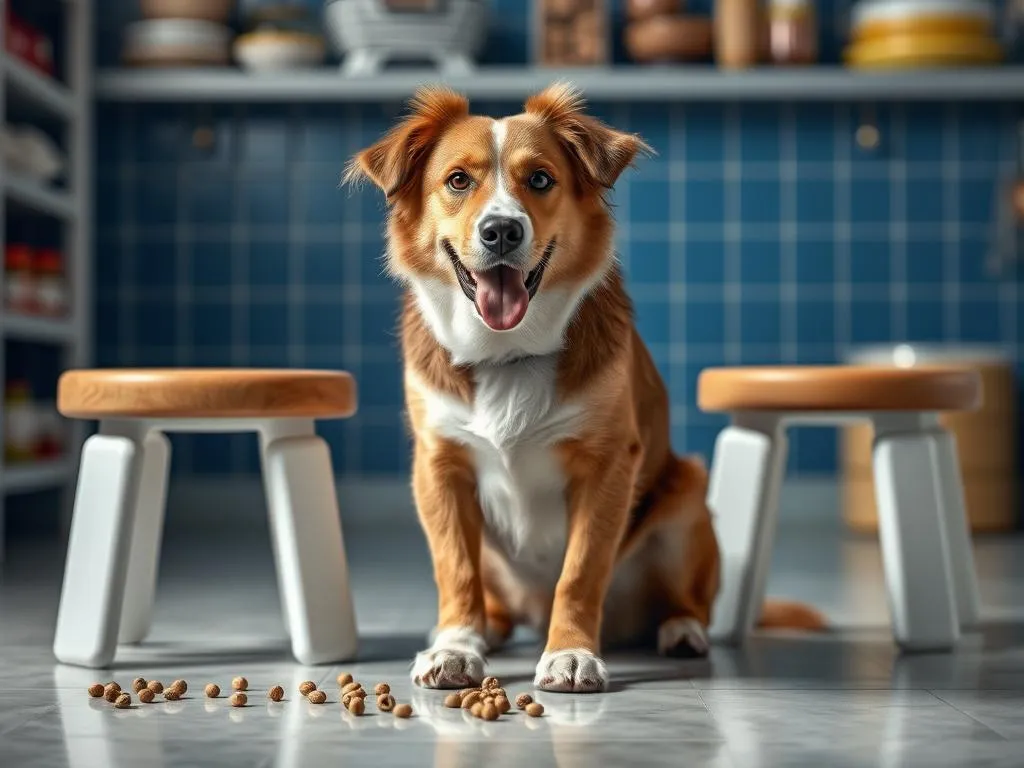
Introduction
Proper nutrition is crucial for the overall health and well-being of dogs. Just like humans, a dog’s diet significantly influences its digestive health and stool consistency. A balanced diet can help prevent common digestive issues and promote firm stools, which is essential for both comfort and hygiene. In this guide, we will explore the best dog foods for firm stools, covering everything from understanding dog digestion to identifying the right ingredients and brands that will help your furry friend thrive.
Understanding Dog Digestion
The Digestive System of Dogs
Dogs have a unique digestive system designed to process a variety of foods, primarily protein. Their anatomy includes a short gastrointestinal tract, which allows them to digest meat efficiently. The digestive process begins in the mouth, where enzymes in saliva start breaking down food. It then moves to the stomach, where gastric juices further digest the food before it enters the intestines, where most nutrient absorption occurs.
Common Digestive Issues in Dogs
Many dogs experience digestive issues at some point in their lives. Common problems include:
- Diarrhea: Characterized by loose or watery stools, often caused by dietary changes, infections, or allergies.
- Constipation: Infrequent or difficult bowel movements, which can result from dehydration or a lack of fiber.
- Vomiting: Can be a sign of various issues, including dietary indiscretion or gastrointestinal disorders.
Symptoms indicating a digestive issue include lethargy, decreased appetite, straining to defecate, and changes in stool consistency.
The Role of Diet in Digestion
The diet plays a pivotal role in a dog’s digestion. Different nutrients affect how well the body processes food and maintains stool consistency. For instance, fiber is essential for healthy digestion, helping to regulate bowel movements and promote firm stools.
Key Nutritional Components for Firm Stools
Proteins
High-quality protein sources are vital for a dog’s overall health and play a significant role in digestion. Proteins are the building blocks of your dog’s body, and they help maintain healthy muscles and tissues. Recommended protein sources include:
- Chicken
- Beef
- Fish
- Lamb
Fiber
Fiber can be classified into two types: soluble and insoluble. Both types serve important roles in digestion. Soluble fiber helps absorb excess water in the intestines, while insoluble fiber adds bulk to the stool.
Recommended fiber sources for promoting firm stools include:
- Pumpkin: Rich in soluble fiber, it can help firm up loose stools.
- Sweet Potatoes: A great source of both soluble and insoluble fiber.
- Brown Rice: Provides insoluble fiber and is gentle on the stomach.
Fats
Healthy fats are crucial for digestion as they aid in nutrient absorption. Omega-3 fatty acids, in particular, are beneficial for maintaining a healthy gut. Recommended fat sources include:
- Fish oil
- Flaxseed oil
- Chicken fat
Carbohydrates
While dogs are primarily carnivorous, carbohydrates also play an essential role in their diet. They provide energy and can aid in digestion. Recommended carbohydrate sources for firm stools include:
- Oats
- Barley
- Quinoa
Identifying the Best Dog Foods
Ingredients to Look For
When searching for the best dog foods for firm stools, consider the following ingredients:
- High-Quality Proteins: Look for whole meats listed as the first ingredient.
- Whole Grains: Choose foods that contain whole grains rather than fillers like corn and soy.
- Natural Additives: Ingredients like probiotics can promote gut health and improve digestion.
Ingredients to Avoid
Be cautious of certain ingredients that may cause digestive issues:
- Common Allergens: Ingredients like wheat, soy, and dairy can trigger allergies in some dogs.
- Artificial Additives: Preservatives, colors, and flavors can upset a dog’s stomach.
Reading Dog Food Labels
Understanding how to read dog food labels is vital. Look for the following:
- Ingredient Lists: Ingredients are listed in descending order by weight.
- Guaranteed Analysis: This tells you the minimum percentages of protein and fat and the maximum percentages of fiber and moisture.
- AAFCO Standards: Ensure the food meets the standards set by the Association of American Feed Control Officials.
Top Recommended Dog Foods for Firm Stools
Dry Dog Foods
Here’s a list of top dry dog foods known for promoting firm stools:
- Royal Canin Gastrointestinal: Specifically designed for digestive health, it contains a blend of nutrients and fibers to support gut flora.
- Hill’s Science Diet Adult Sensitive Stomach & Skin: Features prebiotic fiber for easy digestion and firm stools.
- Purina Pro Plan Savor Adult: Contains real meat and a blend of probiotics and prebiotic fiber to aid digestion.
Wet Dog Foods
For those who prefer wet food, consider these options:
- Wellness CORE Grain-Free: Packed with high-quality proteins and fiber, it promotes healthy digestion.
- Blue Buffalo Homestyle Recipe: Made with real meat and wholesome vegetables, this formula supports digestive health.
- Merrick Grain-Free Texas Beef & Sweet Potato: Contains high-quality beef and fiber-rich sweet potatoes for firm stools.
Homemade Dog Food Options
If you prefer homemade dog food, here are some basic recipes focusing on promoting firm stools:
- Chicken and Pumpkin Stew
- 1 cup cooked chicken (shredded)
- 1 cup pumpkin puree
- 1/2 cup carrots (cooked and chopped)
-
1/2 cup brown rice (cooked)
-
Beef and Sweet Potato Mash
- 1 cup ground beef (cooked)
- 1 cup sweet potato (mashed)
- 1/2 cup green beans (cooked and chopped)
Remember, balancing homemade diets is crucial. Consult with a veterinarian to ensure nutritional needs are met.
Transitioning Your Dog’s Diet
Why Transition Matters
When changing your dog’s food, it’s essential to transition gradually to prevent digestive upset. A sudden change can lead to diarrhea or constipation, negating the benefits of the new diet.
Steps for a Successful Transition
- Gradual Introduction: Start by mixing 25% of the new food with 75% of the old food for a few days.
- Increase New Food Ratio: Gradually increase the new food to 50%, then 75%, and finally to 100% over about a week.
- Monitor Reactions: Keep an eye on your dog’s stool consistency and overall behavior during the transition.
Additional Tips for Maintaining Digestive Health
Regular Vet Check-ups
Routine veterinary visits are crucial for identifying and addressing potential health issues early. Your vet can provide tailored advice on diet and digestive health.
Hydration Needs
Adequate hydration is essential for digestion and stool consistency. Ensure your dog has access to fresh water at all times, especially when consuming dry food.
Regular Exercise
Physical activity contributes to overall digestive health. Regular walks and playtime can help stimulate digestion and promote firm stools.
Conclusion
Choosing the right food is critical for maintaining firm stools and supporting your dog’s digestive health. As you explore the best dog foods for firm stools, remember the importance of high-quality ingredients and a balanced diet. Always consult your veterinarian for personalized advice tailored to your dog’s specific needs.
FAQs
Can I mix different types of dog food?
Mixing different types of dog food is generally fine, but ensure they are compatible in terms of ingredients and nutritional content.
How do I know if my dog is allergic to a certain food?
Signs of a food allergy can include itching, digestive upset, and changes in stool consistency. Consult your vet for proper testing.
What should I do if my dog’s stools remain loose?
If your dog continues to have loose stools after transitioning to a high-quality diet, consult your veterinarian to rule out underlying health issues.
Are there specific dog breeds that need special diets for firm stools?
Certain breeds may be more prone to digestive issues and may require specialized diets. Consult your vet for breed-specific dietary recommendations.









